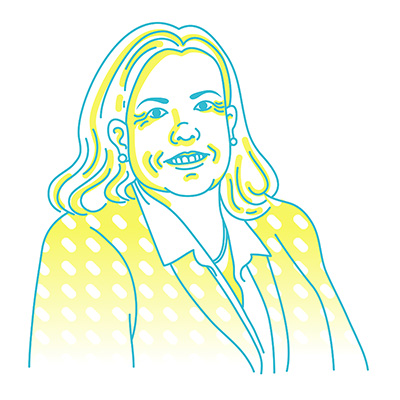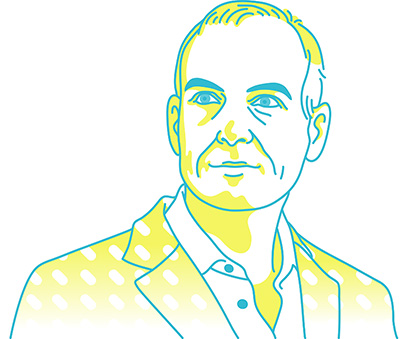In 1996 in the Netherlands, Geert-Jan Bruinsma, a recent college grad who always knew he wanted to start a business, discovered the Internet, and decided he wanted to create a hotel-booking website. He launched Bookings.nl after borrowing a bit more than just inspiration, namely some code, from the fledgling U.S. website, Hilton.com.
Three years later in Cambridge, UK, cousins Andy Phillipps and Adrian Critchlow, a duo which one of their peers playfully described as the Dangerous Brothers because of their-sometimes overly exuberant thinking, likewise thought they could build a better and more locally relevant business than Expedia, Hotels.com, and Lastminute.com by focusing on independent hotels. The result was Activebooking.com, which, in early 2001 after the dot-com crash, changed its name to Active Hotels. It, too, like Bookings.nl, did a little borrowing as it copied the basics of the WorldRes business model. Founded in 1996 in California, WorldRes powered hotel bookings on third-party websites instead of appealing directly to consumers, and faded away in an asset sale a decade later.
The founders and co-founders of Active Hotels and Bookings were techies who knew very little about the hotel industry, although Bruinsma had done a brief stint as a hotel night porter [as did this reporter] during his studies at Universiteit Twente in the Netherlands. That outsider perspective, as well as a love of technology and a belief in the power of data, certainly propelled the trajectory of both businesses.
Within a few years, Active Hotels and Bookings, neither of which raised a significant amount of money by today's venture capital standards, went on to become the leading hotel-booking sites in their home markets and beyond. Through a chance meeting at a travel trade show in London years earlier, both Active Hotels and later Bookings caught the attention of Priceline.com's chief mergers and acquisitions guru, Glenn Fogel, who today is CEO of parent company Booking Holdings. Fogel led his company's efforts to buy Active Hotels and Bookings in 2004 and 2005, respectively.
In 2006, Priceline merged Active Hotels and Bookings to create Booking.com, a brand that changed the course of online travel history, and is largely responsible for Booking Holdings' stature as a roughly $100 billion company today. Both Active Hotels and Bookings were integral to that leap.
Booking.com's Influence Reverberated Across Online Travel
Booking.com reshaped the competitive landscape in travel as its parent company, the Priceline Group, now appropriately named Booking Holdings, transitioned from second-tier player to outright leader. It not only dislodged competitors like Expedia, Orbitz Worldwide, and Travelocity/Lastminute.com in the process, but Booking.com transformed the way travel companies market themselves, and consumers make hotel reservations.
For example, Booking.com emerged as best in class in search engine marketing in travel, and it converted lookers to bookers so efficiently that it had an ever-larger stockpile of cash at its disposal to spend on Google, further widening its competitive advantage.
In some ways — and you can look at its competitors' websites today to confirm this — Booking.com turned all the other online travel agencies into converts. Booking.com's messaging about how many site visitors were looking at a specific hotel at that particular moment, or the number of people who had booked the property in the past day ["Booked 120 times in the last 24 hours"] became standard fare across online travel. Because of Booking.com's influence, rival Expedia Group, which now owns Expedia.com, Travelocity, Orbitz, and Wotif, had to add an option in many listings to enable travelers to wait until they arrive at the hotel to pay instead of having to prepay months in advance at the time of the booking.
The emergence of Booking.com as a powerhouse in hotel bookings put pressure on Expedia and others' commission structures, and rates have been descending for years, particularly for the big chains.
Booking.com was also one of the first online travel players to recognize that all types of accommodations, whether they be hotels or vacation rentals, would be relevant to travelers, depending on the situation, and it made comprehensiveness, including listings for hotels, vacation rentals, hostels, and apartments, a rallying cry.
For further context, though, make sure to read Fogel's take on whether Booking.com in particular, and online travel agencies in general, were truly disruptive when compared to the rise of the Internet, mobile, Google, Facebook, and Uber.
In Their Own Words
What follows is the oral history of the greatest acquisition — actually a pair of acquisitions — in online travel history. We illustrate clearly below how the Bookings acquisition alone created roughly $88 billion in value for Booking Holdings, nearly as great as eBay's purchase of PayPal, Facebook's deal for Instagram, and Google's acquisitions of YouTube and Android. And, our calculations don't even take into account Priceline's acquisition of Active Hotels, which occurred a year earlier than that of Bookings.
Like most of the greatest acquisitions in Internet history, Priceline's Active Hotels and Bookings acquisitions, which it melded together to create Booking.com, added a layer onto a legacy brand that injected new life into the company. That's true of online marketplace eBay, which entered into digital payments by buying Paypal in 2002; Google grew its mobile and video chops through its acquisitions of Android and YouTube in 2005 and 2006, respectively; and Facebook reengaged a younger, Millennial crowd with its deal for Instagram in 2012.
We ranked Priceline's acquisition of Bookings B.V. alone — even when excluding the Active Hotels transaction — as the fifth greatest deal in Internet history, surpassing Google-DoubleClick and Amazon-Zappos in terms of value creation. Priceline's Active-Bookings acquisitions transformed a travel brand that was running out of capital resources and international expansion options for its Name Your Own Price business. It opened up global opportunities in hotel bookings where Booking.com disclosed the room rates in advance instead of cloaking them in a relatively complicated bidding process.
This oral history was a couple of years in the making. We started speaking with the co-founders and key executives at Active Hotels, Booking.com, Booking Holdings, and Expedia in 2016, continued in 2017, and it all culminates here. In their own words, you can read often-never-revealed details about the formation of the companies; how they viewed the competition; the talks that led up to the deals; the sometimes-stormy interactions when British-led Active Hotels and Dutch-run Bookings team members clashed during the integration process; and how they feel about the outcome. Despite what some — but not all — would characterize as a stormy marriage, the pairing of Active Hotels and Bookings to create Booking.com helped create enormous value for Booking Holdings, and many of the early employees.
There is plenty of news, if not scoops, that you'll read below. For example, Expedia, which was owned by InterActiveCorp, looked at both Bookings.nl and Active Hotels and, for various reasons, didn't make an offer for either. The decisions could arguably go down as the greatest missed opportunity in online travel history. Incidentally, there isn't anyone at IAC or Expedia — Barry Diller, anyone? — raising his hand to say he was the one who decided not to buy Active Hotels or Bookings.
You'll also read how Active Hotels and Bookings explored joining together before Priceline scooped them up in a deftly executed one-two punch. Meanwhile, prior to Expedia acquiring Italy's Venere in 2008, in an unsuccessful bid to make headway against the Booking.com juggernaut in Europe, Fogel and the Booking.com team looked at a deal to buy Venere. They didn't proceed, however, because the founders were quarreling, and just wanted to unload the business and get out of the way.
There are personal tales interwoven into these business stories. In late 2004, Fogel explained to his wife, Amy Roberts Fogel, that he'd have to spend a couple of extra days in Europe — again — because he had to visit a little-known company called Bookings.nl in Amsterdam; Shane Whaley, who initially put Fogel in touch with Active Hotels, lost a girlfriend when he moved from Octopustravel in London to hook up with Active Hotels in Cambridge in 2003; current Booking.com CEO Gillian Tans recalled the excitement as employee number seven when the team presented the Bookings business to the Priceline mergers and acquisitions team in 2005; and Rachel Howes, who worked as a contracts manager at Active Hotels and transitioned to Booking.com after the deals, looked back at her experiences as "the ride of my life."
An Oral History of Travel's Greatest Acquisition, Booking.com, builds on two previous Skift oral histories: The Definitive Oral History of Online Travel, and Complete Oral History of Boutique Hotels.
Like the others, An Oral History of Travel's Greatest Acquisition, Booking.com, spotlights pioneers who refused to go along with the crowd and conventional wisdom — au contraire — and made online travel history because of their convictions and talent. Bookings' Arthur Kosten has a tale to tell in that regard that is one of our favorites.
When you dig into this oral history of Booking.com and the two deals that were its foundation, you'll see, to paraphrase Howes, that the evolution of this business has indeed been quite a ride.












